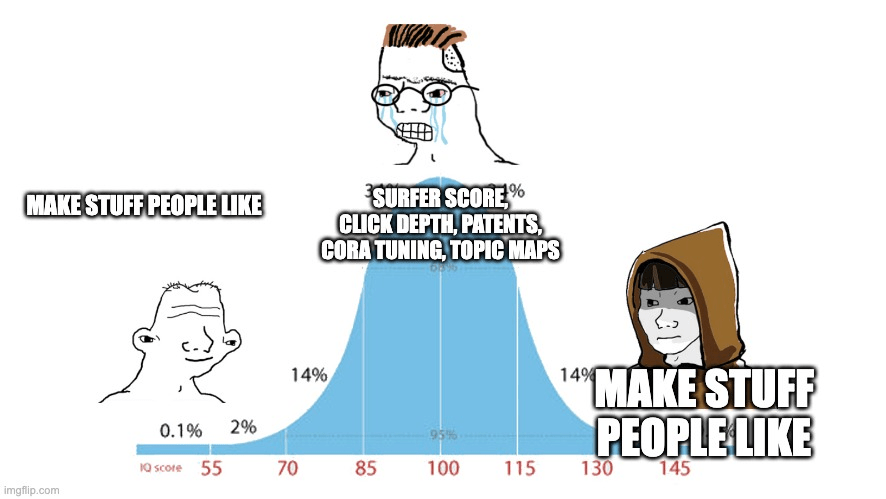Sounds scary, doesn’t it? Not only does the word “entity” sound foreign, it feels like yet another thing to add to your never-ending SEO to-do list. You’re barely afloat when it comes to SEO, but ohgawd here comes one more new thing to dedicate your scarce resources.
I have good news for you though: You don’t have to do entity SEO.
Why? Because you’re probably already doing it.
Let’s start from the beginning.
In 2012, Google announced the Knowledge Graph. The Knowledge Graph is a knowledge base of entities and the relationships between them.
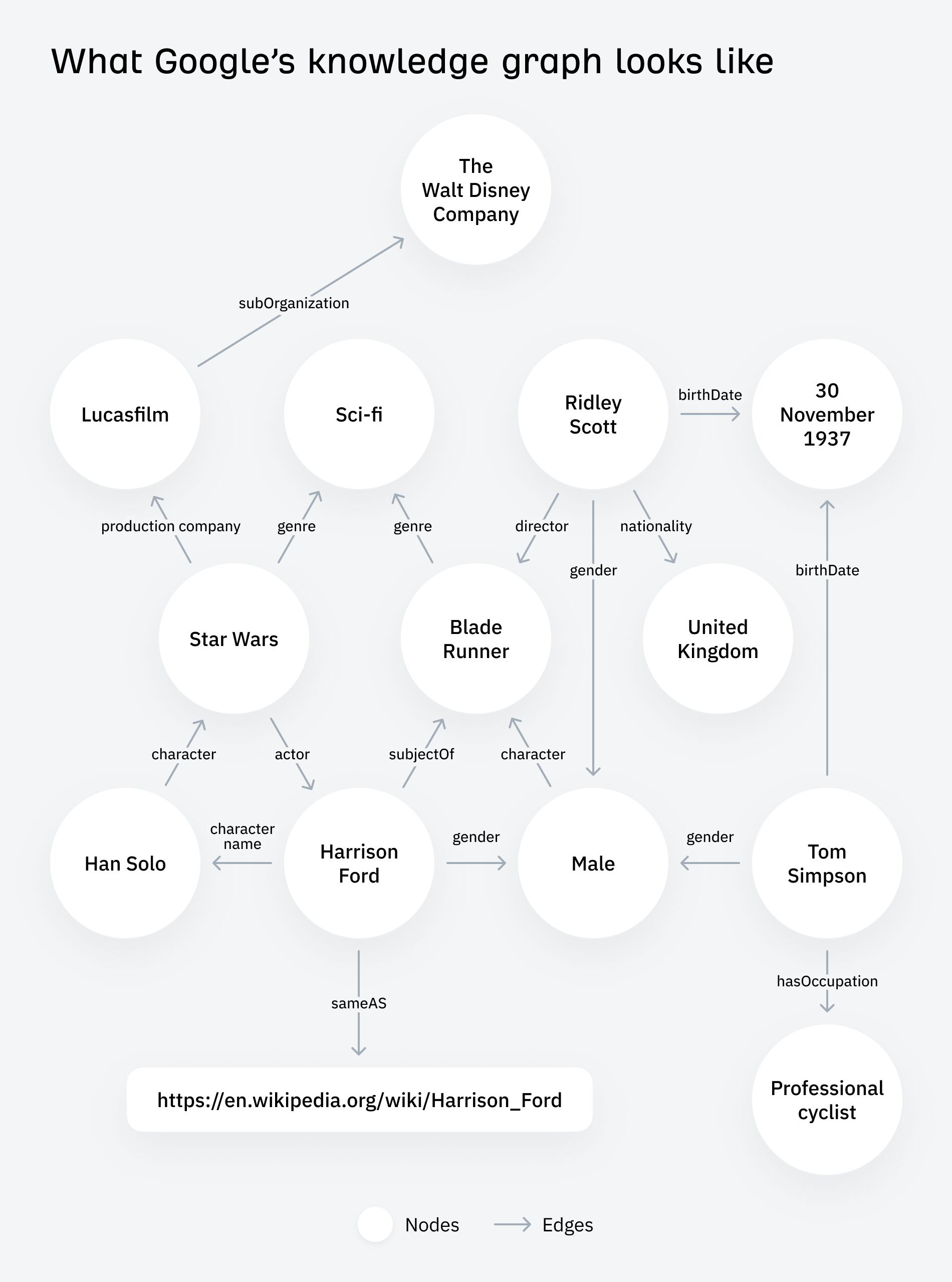
An entity is any object or concept that can be distinctly identified. This includes tangibles like people, places, and organizations, and intangibles like colors, concepts, and feelings.
For example, the footballer Federico Chiesa is an entity:
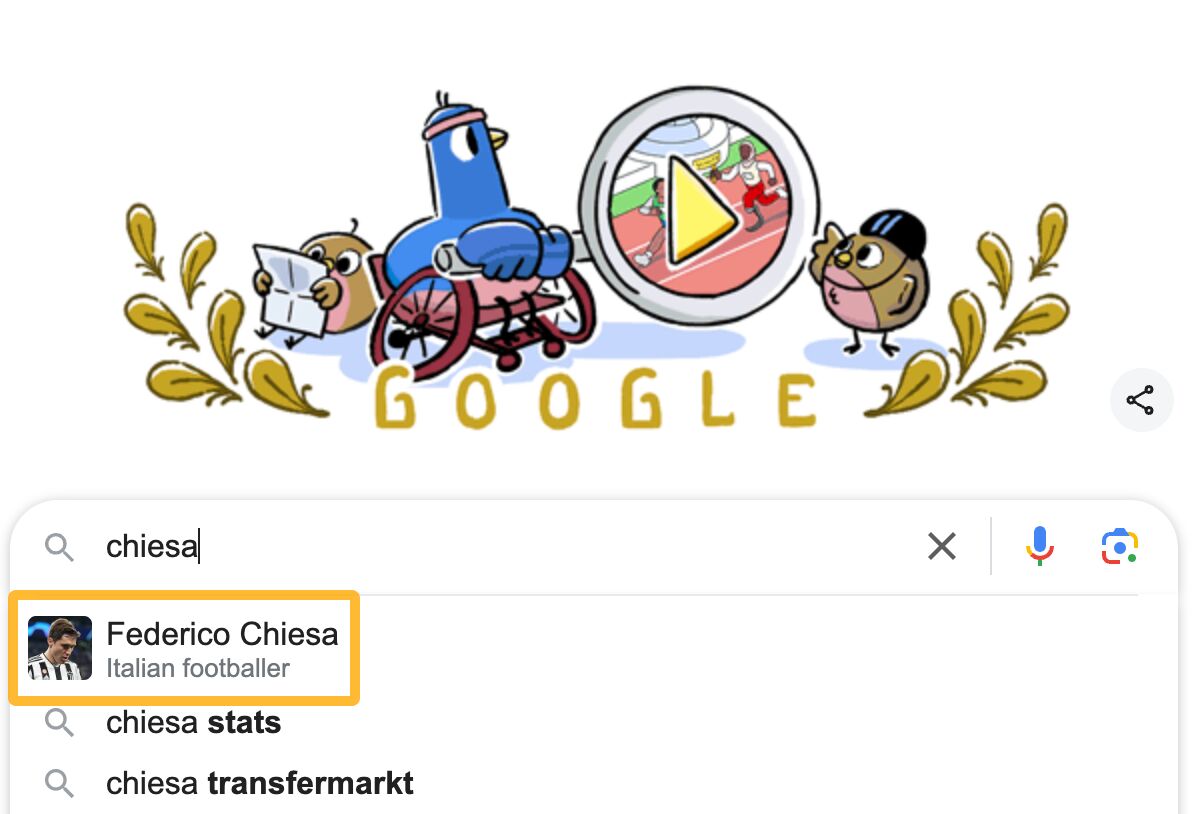
So is the famous British-Indian restaurant Dishoom:
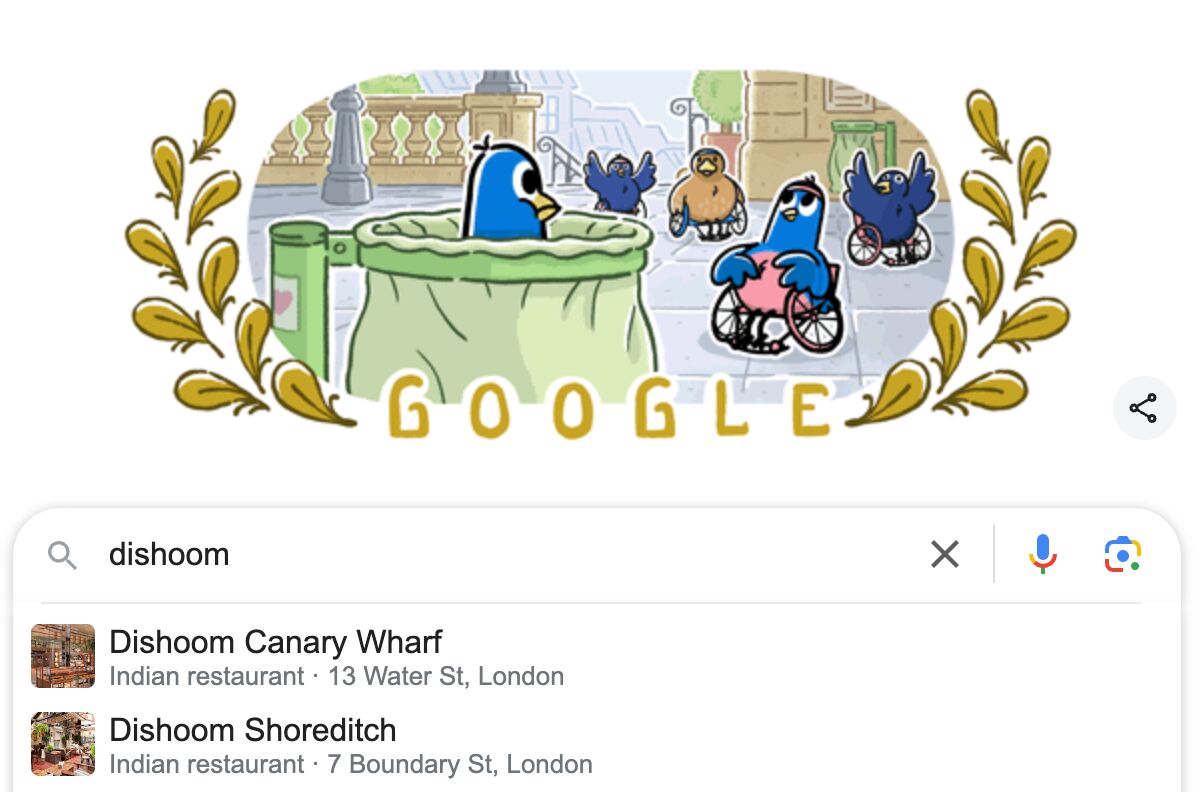
Entities are connected by edges, which describe the relationships between them.
Introducing the Knowledge Graph helped improve Google’s search results because:
- Google could better understand search intent — People search for the same thing but describe it in different ways. Google can now understand this and serve the same results.
- It reduced reliance on keyword matching — Matching the number of keywords on a page doesn’t guarantee relevance; also it prevents crafty SEOs from keyword stuffing.
- It reduced Google’s computational load — The Internet is virtually infinite and Google simply cannot understand the meaning of every word, paragraph, webpage, and website. Entities provide a structure where Google can improve understanding while minimizing load.
For example, even though we didn’t mention the actor’s name, Google can understand we’re looking for Harrison Ford and therefore shows his filmography:
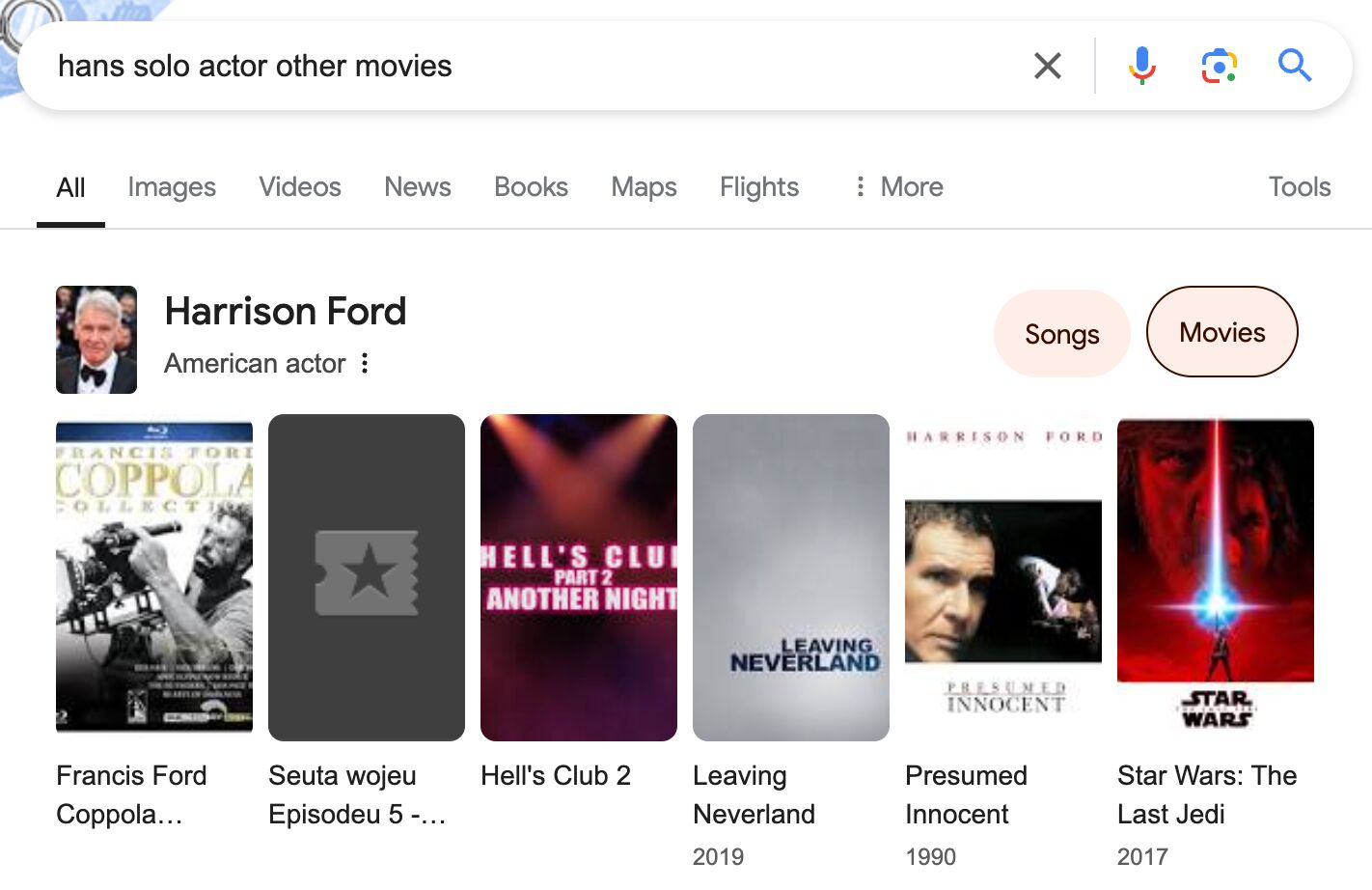
That’s because Hans Solo and Harrison Ford are closely connected entities in the Knowledge Graph. Google shows Knowledge Graph data in SERP features like Knowledge Panels and Knowledge Cards.
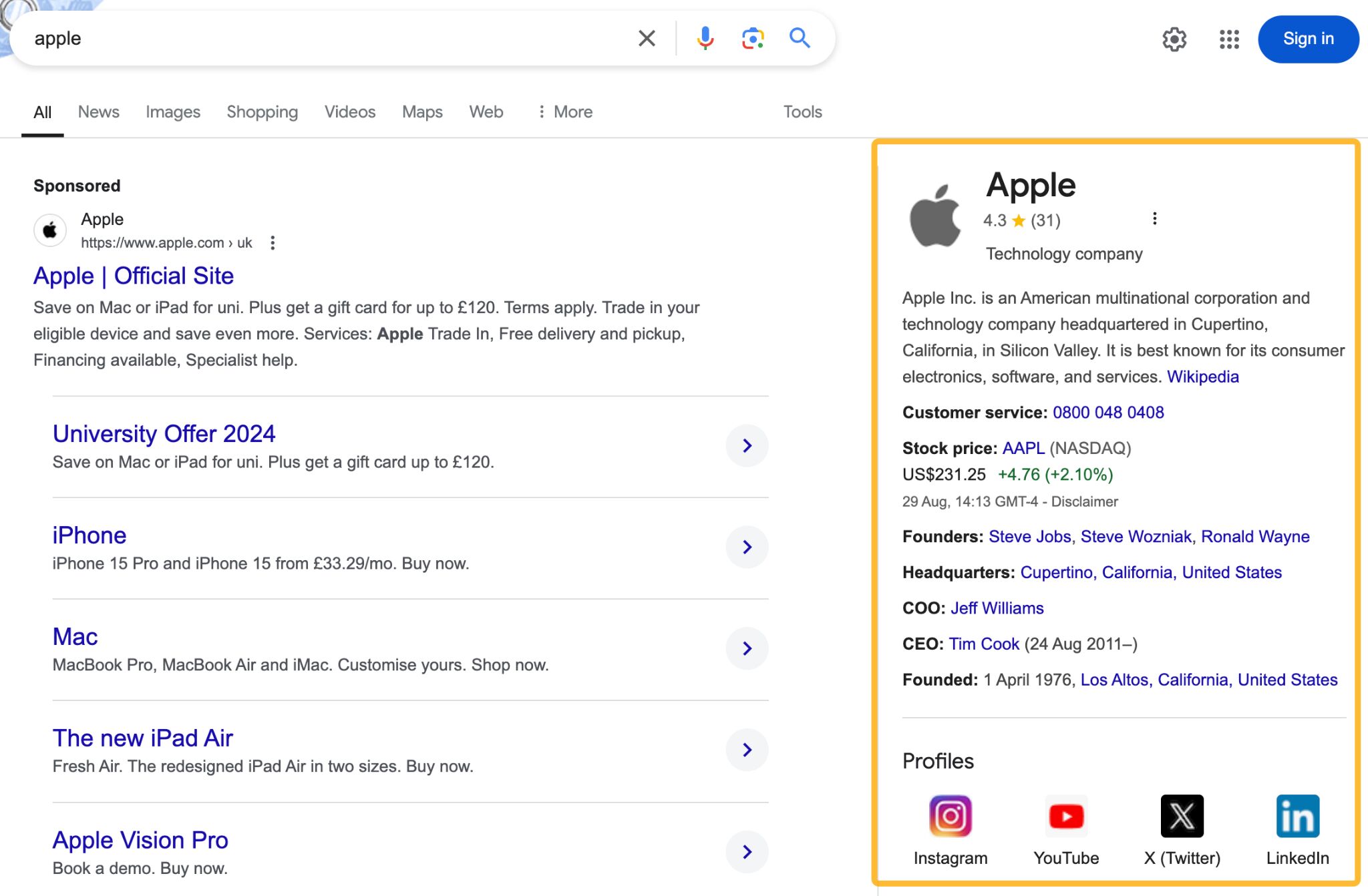
With this knowledge, we can then define entity SEO as optimizing your website or webpages for such entities.
If Google has moved to entity-oriented search, then entity SEO is just SEO. As my colleague Patrick Stox says, “The entity identification part is more on Google’s end than on our end.”
I mean, if you look at the ‘entity SEO’ tactics you find in blog posts, you’ll discover that they’re mostly just SEO tactics:
- Earn a Wikipedia page
- Create a Google Business Profile
- Add internal links
- Create all digital assets Google is representing on the page (e.g., videos, images, Twitter)
- Develop topical authority
- Include semantically related words on a page
- Add schema markup
Let’s be honest. If you’re serious about SEO and are investing in it, then it’s likely you’re already doing most of the above.
Regardless of entities, wouldn’t you want a Wikipedia page? After all, it confers benefits beyond “entity SEO”. Brand recognition, backlinks from one of the world’s most authoritative sites (albeit nofollow)—any company would want that.
If you’re a local business, you’ve probably created a Google Business Profile. Adding internal links is just SEO 101.
And billions of blistering barnacles, creating all digital assets Google wants to see, like images and videos, is practically marketing 101. If you’re a Korean recipe site and want to be associated with the kimchi jjigae entity, wouldn’t you already know you need to make a video and have photos of the cooking process?
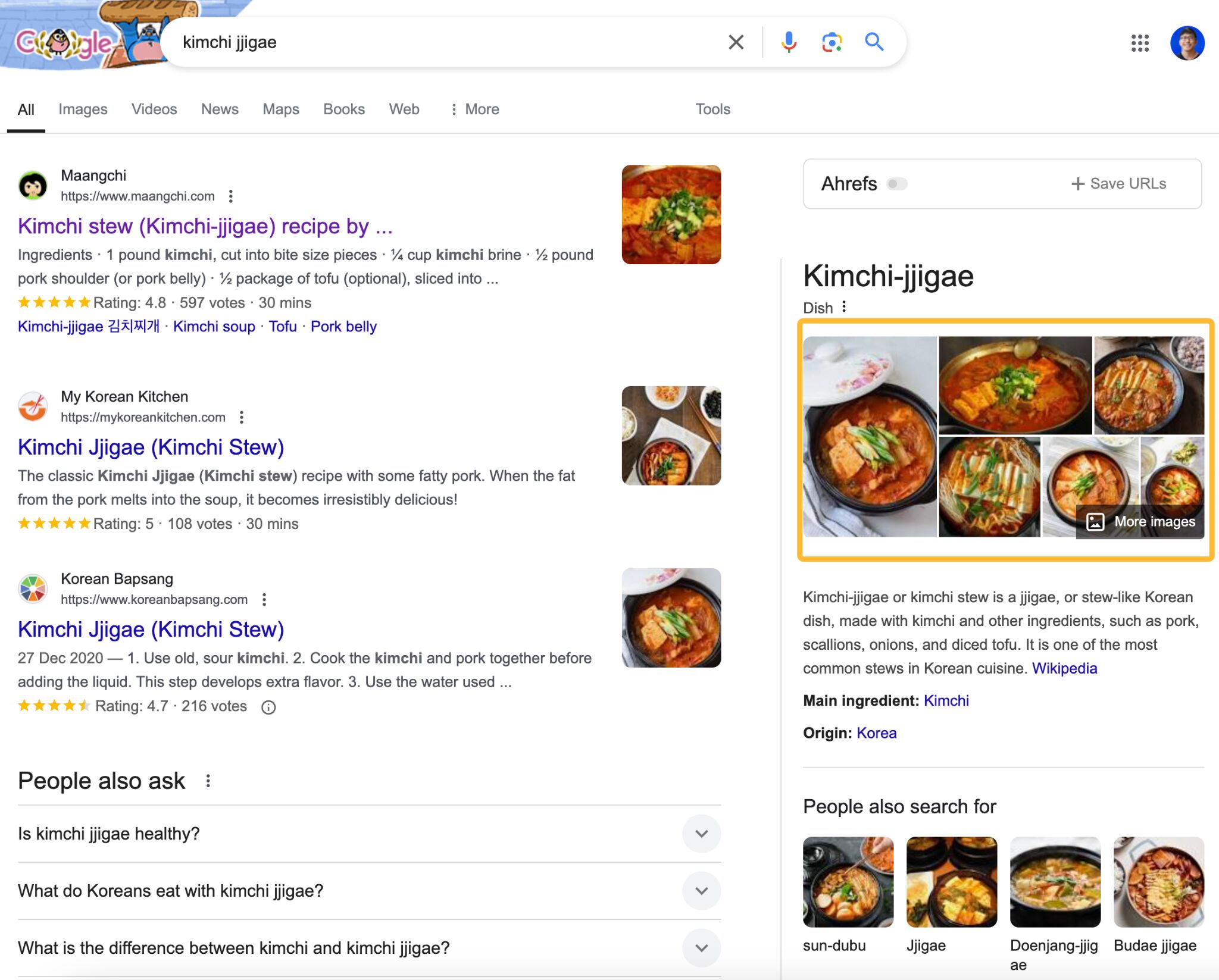
When I started my breakdance site years ago, I knew nothing about SEO and content marketing but I still knew I needed to make YouTube videos. Because guess what? It’s hard to learn breakdancing from words. I don’t think I needed an entity SEO to tell me that.
Topical authority is an SEO concept where a website aims to become the go-to authority on one or more topics. Call me crazy, but it feels like blogging 101. Read most guides on how to start a blog and I’m sure you’ll find a subheading called “niche down”. And once you niche down, it’s inevitable you’ll create content surrounding that one topic.
If I start a breakdance site, what are the chances I’ll write about contemporary dance or pop art? Pretty low.
In fact, topical authority is similar to the Wiki Strategy, which Nat Eliason wrote about in 2017. There wasn’t a single mention of entities. It was just the right way to make content for the Internet.
I think the biggest problem here isn’t entities versus keywords or that topical authority is a brand-new strategy. It’s simply that many SEOs are driven by short-sightedness or the wrong incentives.
You can target a whole bunch of unrelated keywords that have high search volume, gain incredible amounts of search traffic, and brag about how successful you are as an SEO.
Some of the pages sending HubSpot the most search traffic has barely anything to do with their core product. A page on how to type the shrug emoji? The most famous quotes?
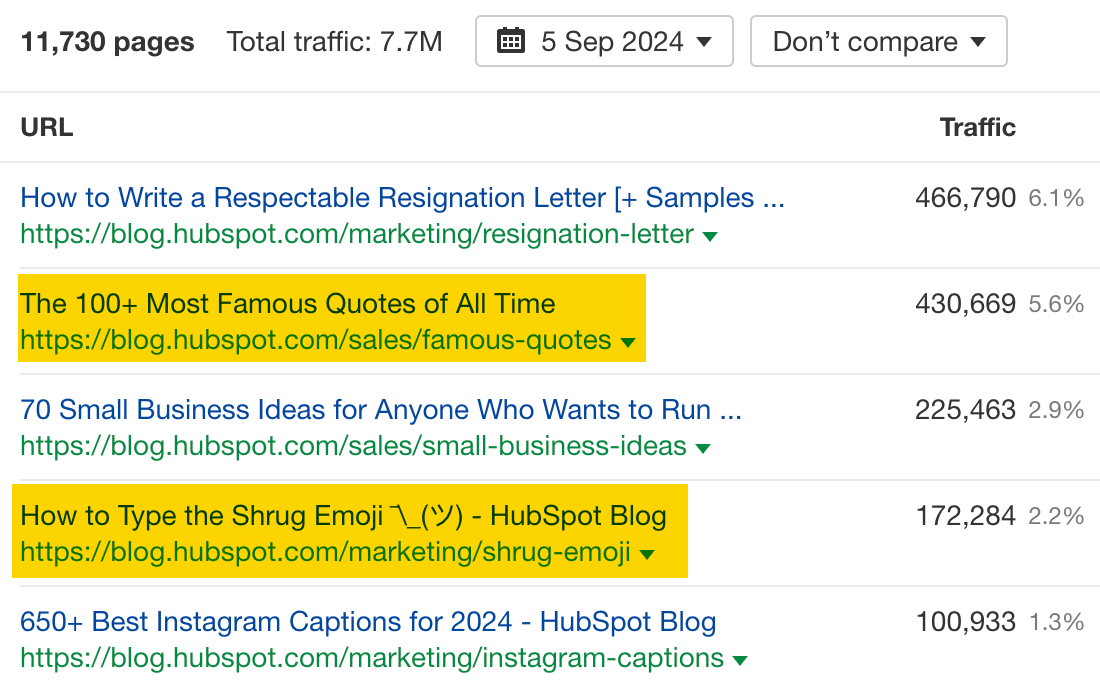
This is not to single out HubSpot—I’m sure they have their reasons, as explored by Ryan here—but to illustrate that many companies do the exact same thing. And when Google stops rewarding this behavior, all of a sudden companies realise they do need to write about their core competencies. They need to “build topical authority”.
I don’t want to throw the baby out with the bathwater because I do see value in the last two ‘entity SEO tactics’. But again, if you’re doing something similar to the Wiki Strategy for your site, chances are you would have naturally included entities or semantically relevant words without thinking too much about it. It’s difficult to create content about kimchi jjigae without mentioning kimchi, pork, or gochujang.
However, to prevent the curse of knowledge or simply to avoid blindspots, checking for important subtopics you might have missed is useful. At Ahrefs, we run a page-level content gap analysis and look out for subtopics:
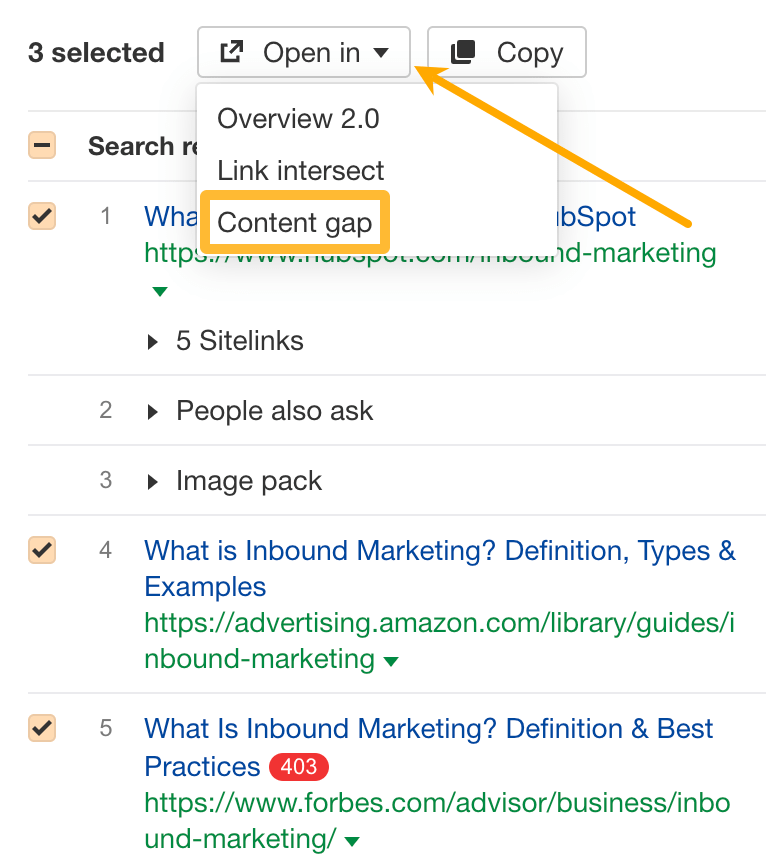
For example, if we ran a content gap analysis on “inbound marketing” for the top three ranking pages, we see that we might need to include these subtopics:
- What is inbound marketing
- Inbound marketing strategy
- Inbound marketing examples
- Inbound marketing tools
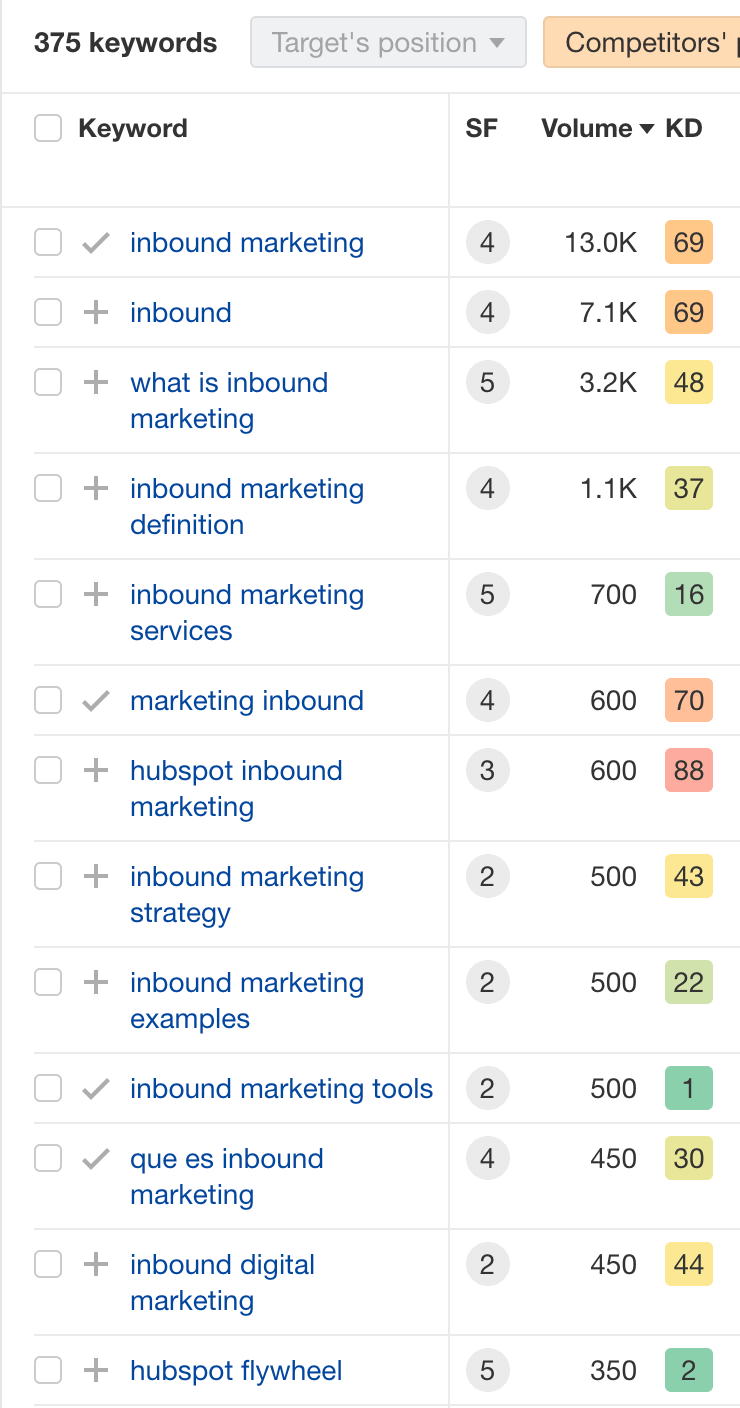
Finally, adding schema markup makes the most sense because it’s how Google recognizes entities and better understands the content of web pages. But if it’s just one new tactic—which I believe is already part of ‘standard’ SEO and you might already be doing it—then there’s no need to create a category to define the “new era” (voice SEO, where art thou?)
Final thoughts
Two years ago, someone on Reddit asked for an SEO workflow that utilized super advanced SEO methodologies:
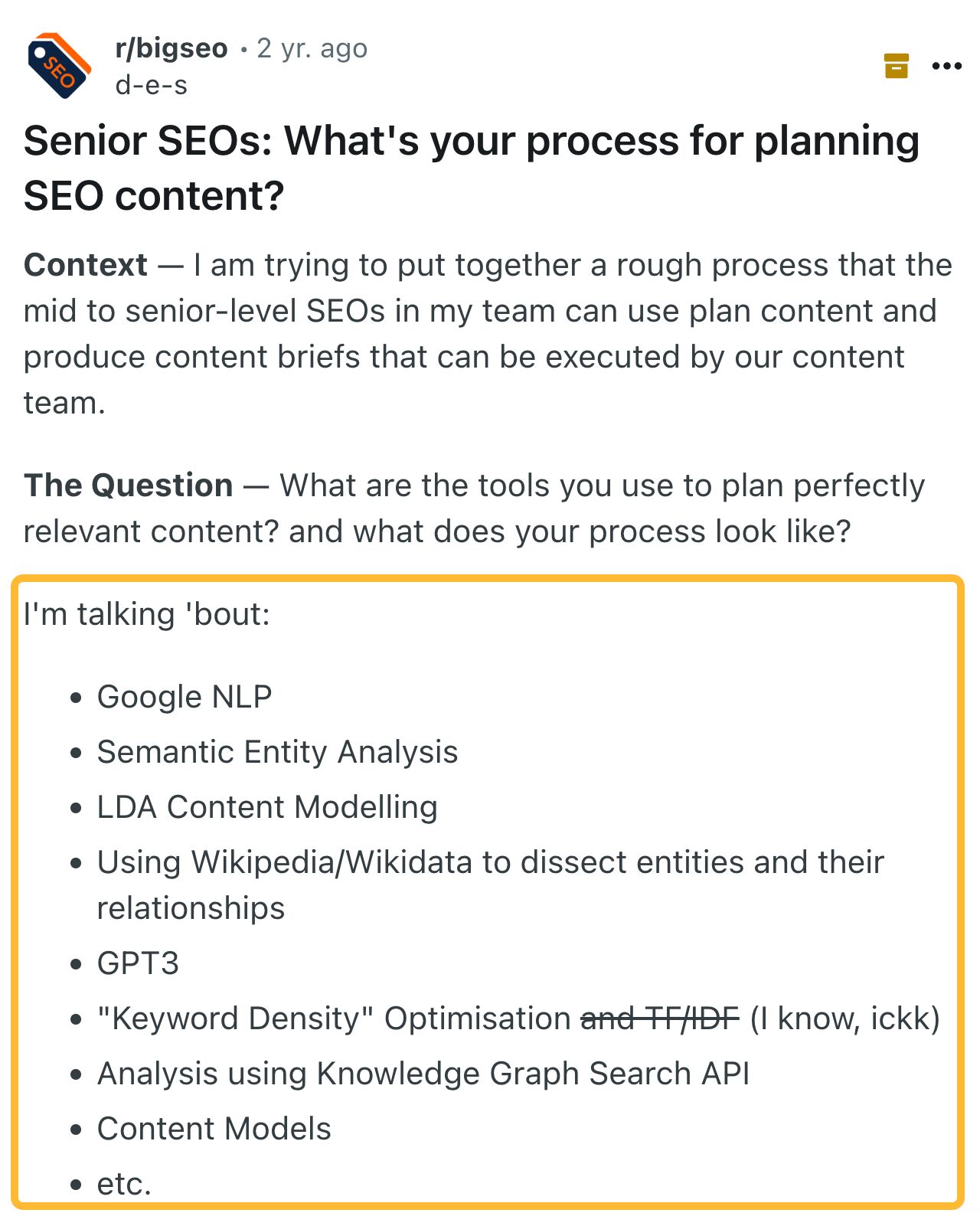
The top answer: None of the above.
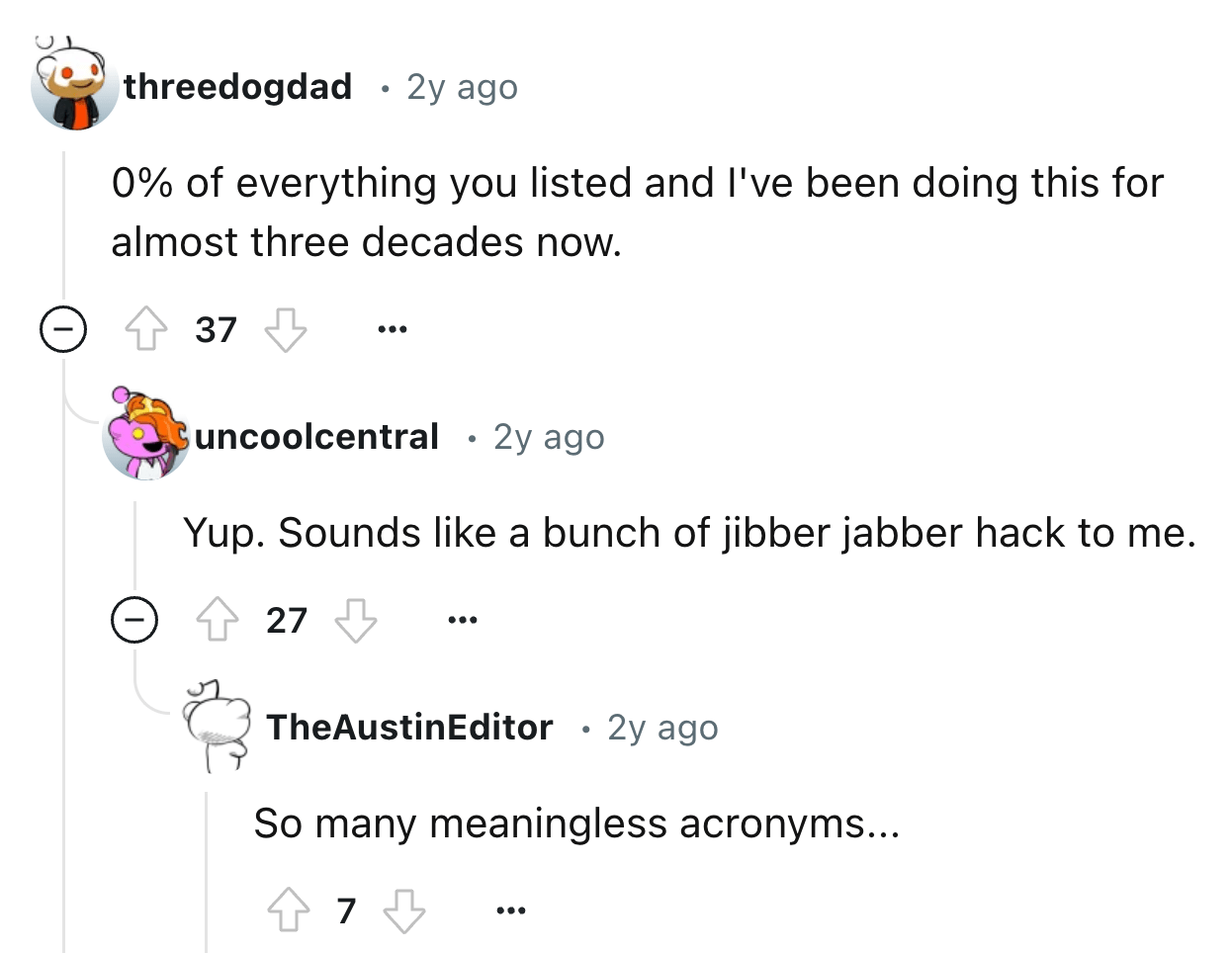
When our Chief Marketing Officer Tim Soulo tweeted about this Reddit thread, he got similar replies too:
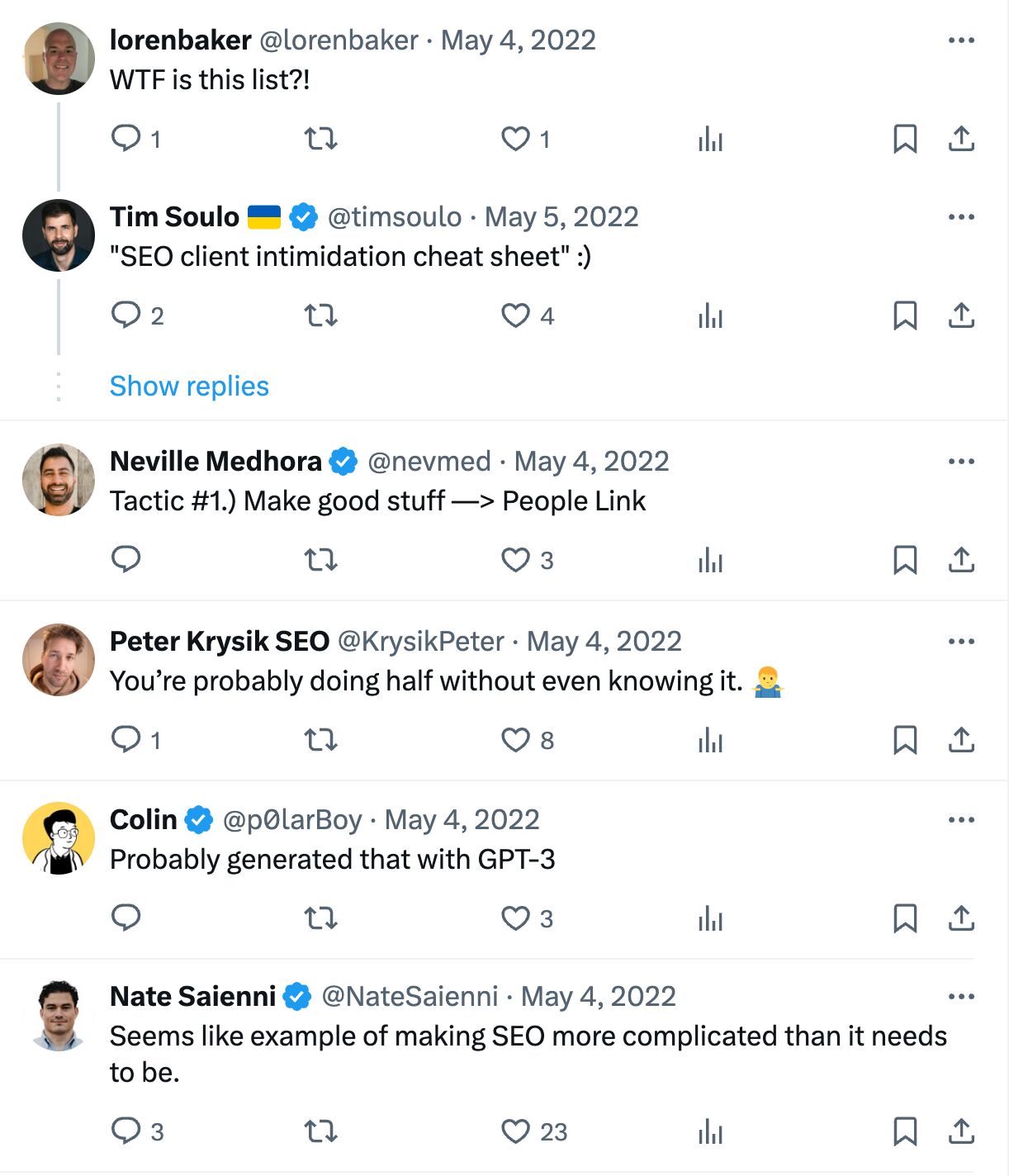
And even though I don’t know him, this is a person after my own heart:
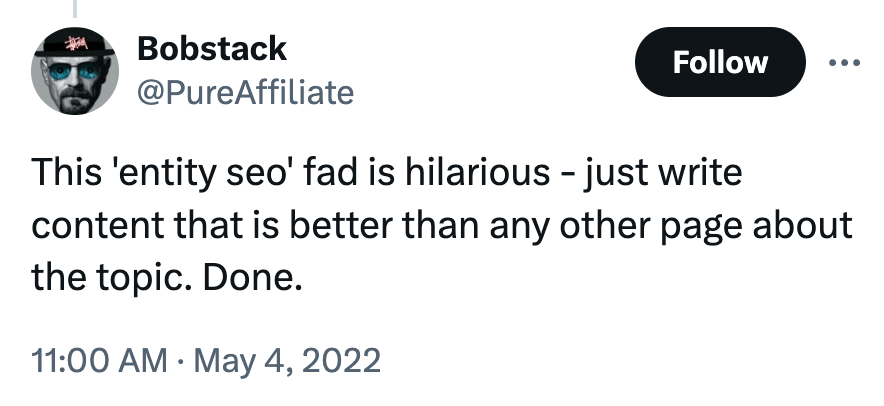
You don’t have to worry about entity SEO. If you have passion for a topic and are creating high-quality content that fulfills what people are looking for, then you’re likely already doing “entity SEO”.
Just follow this meme: Make stuff people like.
